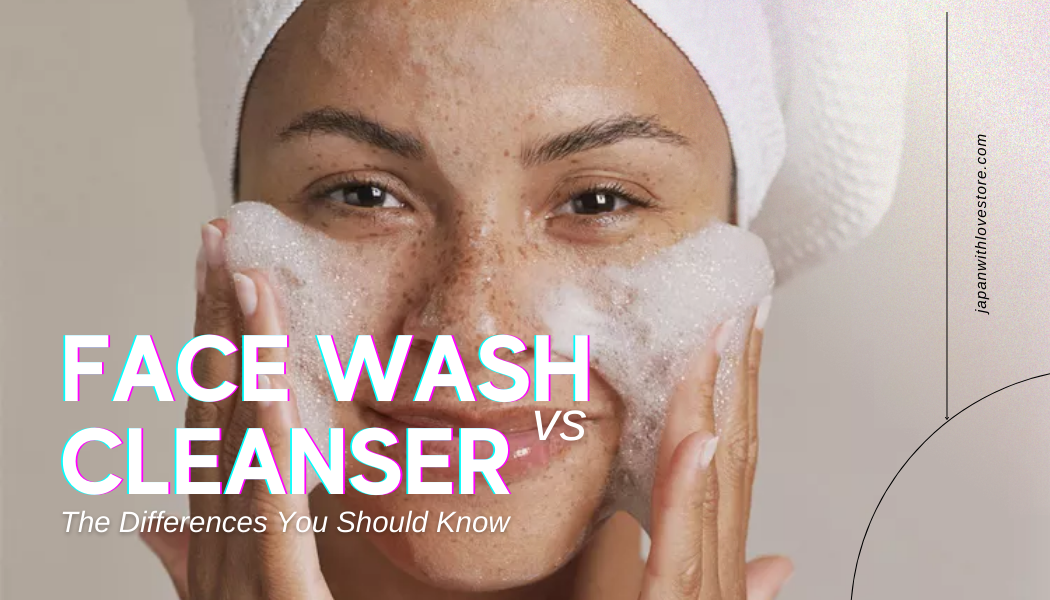
- 0 コメント
- by Japan With Love
洗顔料 vs クレンザー:知っておくべき違い
- 0 コメント
- by Japan With Love
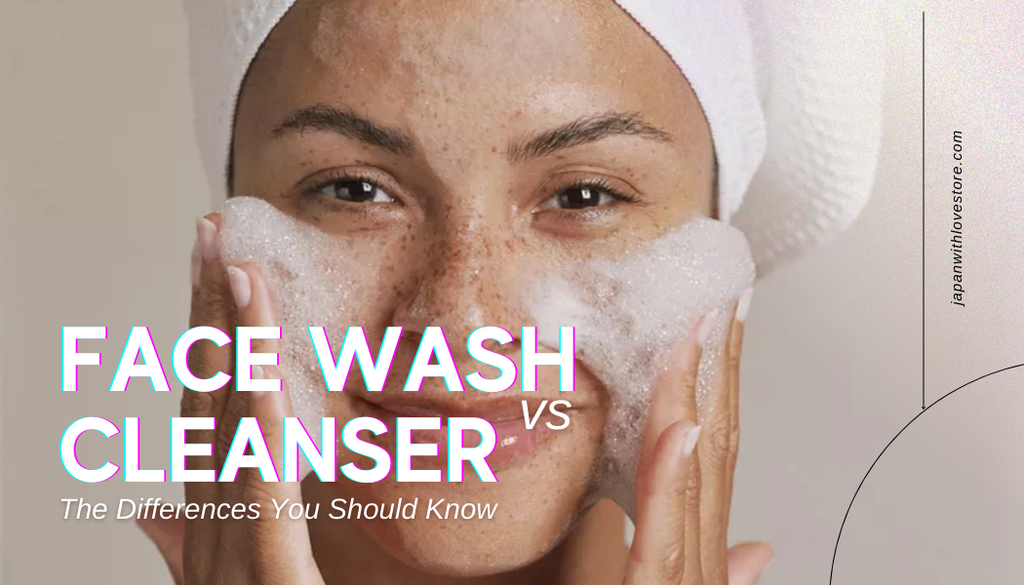
スキンケアの世界では、明るく美しい肌への憧れから、奇跡的な効果を謳うさまざまな製品を試す人が多くいます。数ある選択肢の中でも、毎日の美容ルーチンの重要な要素となるのが、洗顔料とクレンザーです。これらの言葉は同じ意味で使用されることもありますが、効果的なスキンケアルーチンを開発し、個々のニーズに合わせてパーソナライズするためには、それらの違いを理解することが不可欠です。
このブログでは、洗顔料とクレンジング剤の違いを見ていき、より健康的で輝きのある肌のための情報に基づいた意思決定を支援します。
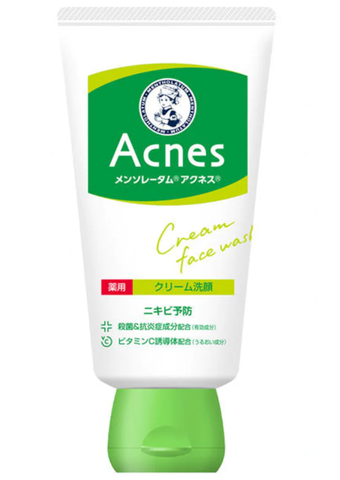
アクネス クレンザー - 日本で人気の洗顔料の一つ
洗い上がりがつるつるになるものをお探しなら、アクネス クレンザーをお試しください
洗顔料は通常、水性成分で配合されており、肌にマッサージすると泡立ちます。この泡立ち作用は、毛穴の奥まで浸透し、徹底的な洗浄を提供するように設計されています。ただし、このディープクレンジング特性は、特定の肌タイプには強すぎる場合があります。
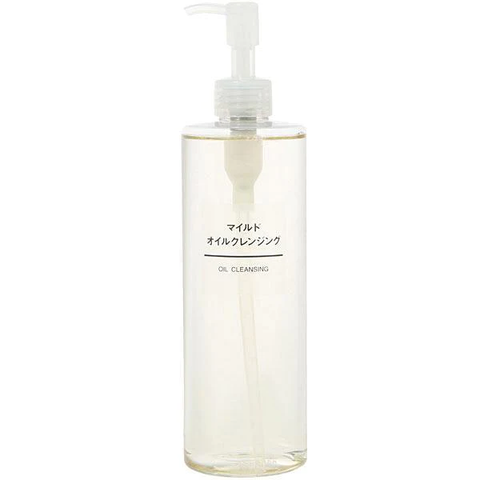
無印良品オイルクレンザー - メイク落としに非常におすすめの商品の一つ
メイクをしっかり落とすには、無印良品オイルクレンザーをお買い求めください。
クレンザーは、よりリッチな処方、オイルベースのオプション、濃厚なテクスチャーを備えた、贅沢な洗顔料です。肌の水分バランスを維持し、優しく効果的な洗浄を提供し、水っぽい洗顔料とは異なり、感覚的な体験を提供します。
洗顔料とクレンザーの主な違いは、処方、目的、および意図された使用法にあります。

ユーザーの目的によって、洗顔料またはクレンザーのどちらが適しているかが決まります。
クレンジング剤は、肌の自然な油分を奪うことなく、汚れ、油分、メイクを落とすように設計された、より穏やかでマイルドな処方です。効果的に洗浄しながら肌の水分レベルを維持することに重点を置いており、毎日の使用や、敏感肌を含むすべての肌タイプに適しています。
洗顔料は、肌の表面から余分な油分、汚れ、不純物を取り除くことで、より深い洗浄を提供するように配合されています。多くの場合、より強力な洗浄剤が含まれており、ニキビや脂性肌など、特定のスキンケアの悩みに対応するように設計されています。
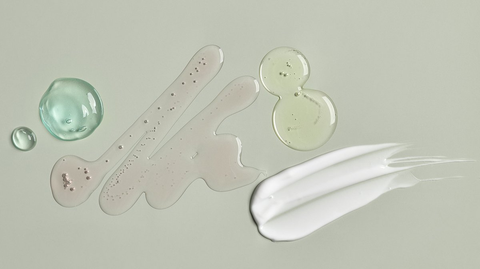
製品の形態を理解することで、より良い選択ができます。
洗顔料は通常、ゲル、フォーム、または液体の形で提供され、水と混合すると泡立ちます。深い洗浄を提供するために、より強力な界面活性剤が含まれており、特定の肌の悩みをターゲットとする追加の有効成分が含まれている場合があります。ダヴ洗顔料とハトムギクレンザーは、この製品範囲のテクスチャーを視覚化するのに最適な例です。
洗顔料は、クリーム、ローション、オイル、バームなど、さまざまな形態で提供されます。肌を乾燥させることなく、不純物を優しく取り除くために、よりマイルドな界面活性剤または洗浄剤が含まれています。クレンザーには、皮膚に潤いを与え、栄養を与えるために、エモリエントや保湿剤などの保湿成分も含まれている場合があります。ハダラボ極潤オイル、ハトムギクレンジングオイルなど、一部のメイク落としオイルは、この製品ラインの良い例となる可能性があります。
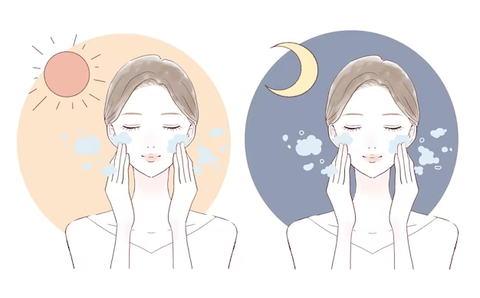
昼光または夜光のルーチンも、クレンジングまたは洗顔料のどちらを選択するかに影響を与えます。
洗顔料は、朝に肌を洗浄し、一晩中蓄積された余分な油分を取り除くために一般的に使用されます。また、運動後や激しい発汗後に汗や汚れを洗い流すのにも適しています。
クレンジング剤は通常、夕方にスキンケアルーチンの一部として、メイク、日焼け止め、および一日を通して蓄積された汚染物質を取り除くために使用されます。刺激や乾燥を引き起こすことなく、優しく効果的な洗浄を提供します。
洗顔料は、特定のスキンケアの悩みをターゲットとする、より深い洗浄を提供し、クレンジング剤は、より穏やかで、毎日の使用やすべての肌タイプに適しているため、2つのうちどちらを選択するかは、個々のニーズと目標に基づいています。
最高の 日本の洗顔料を今すぐスキンケアルーチンに取り入れましょう!
洗顔料とクレンジング剤のどちらが良いかを判断することは、肌のタイプ、特定のスキンケアの悩み、個人的な好みなど、さまざまな要因によって異なります。判断するのに役立ついくつかの考慮事項を次に示します。
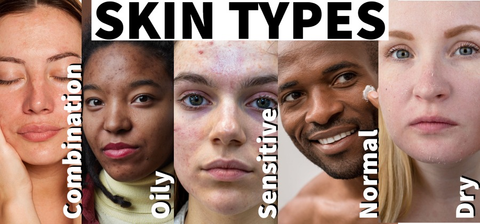
ほとんどの人は、現在の肌のタイプに応じて、洗顔料またはクレンジング剤を選択します。
余分な油分や不純物を取り除くために、より深い洗浄が必要な脂性肌やニキビができやすい肌の場合は、泡立ち作用とより強力な洗浄剤のため、洗顔料の方が適している場合があります。
刺激や脱水症状を起こしやすい乾燥肌や敏感肌の場合は、汚れや不純物を効果的に除去しながら肌の水分バランスを維持するため、穏やかなクレンジング剤の方が適している場合があります。
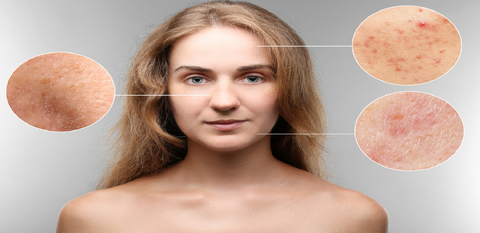
また、現在のスキンケアの問題も、これらの2種類の製品をどのように選択するかに影響を与えます。
洗顔料とクレンジング剤のどちらを選択するかを検討する際には、特定のスキンケアの悩みを考慮してください。たとえば、ニキビや吹き出物をターゲットにしている場合は、ニキビと戦う成分が含まれた洗顔料の方が有益な場合があります。
水分補給と栄養補給に重点を置いている場合は、ヒアルロン酸やセラミドなどの保湿成分が含まれた保湿クレンジング剤の方が望ましい場合があります。

毎日のスキンケアルーチン、およびメイクアップの使用や汗をかきやすい活動などのライフスタイルの考慮事項は、洗顔料またはクレンジング剤の選択に影響を与える可能性があります。
洗顔料はさわやかな泡立ちを提供し、クリーミーなクレンジング剤は贅沢な感触を提供します。2つのうちどちらを選択するかは、個人的な好みや、定期的なメイクアップの使用や、過剰な汗や汚れの蓄積を引き起こす活動などのライフスタイル要因によって異なります。
結局のところ、洗顔料またはクレンジング剤のどちらが良いかという普遍的な答えはありません。個々のスキンケアのニーズと好みを評価して、どの製品が自分の肌に最適で、健康的で輝きのある肌に貢献するかを判断することが不可欠です。さまざまな日本のクレンジング剤と洗顔料を試し、肌がどのように反応するかを観察すると、自分に最適なオプションを見つけることができます。
洗顔料は通常、より深い洗浄のために配合されており、多くの場合、油分や不純物を除去するためのより強力な界面活性剤が含まれていますが、クレンジング剤は、肌の水分バランスを維持することに重点を置いた、より穏やかな処方です。
肌のタイプと特定のスキンケアの悩みを考慮してください。脂性肌またはニキビができやすい肌の場合は、洗顔料の方が適している場合があります。乾燥肌または敏感肌の場合は、穏やかなクレンジング剤が推奨されることがよくあります。
どちらの製品も肌を洗浄する目的を果たしますが、処方と目的が異なります。肌のタイプとスキンケアの目標に合った製品を選択するのが最善です。
はい、必要に応じて、両方の製品をスキンケアルーチンで使用できます。たとえば、肌を過剰に剥離することなく、徹底的に洗浄するために、朝に洗顔料を使用し、夕方にクレンジング剤を使用することができます。
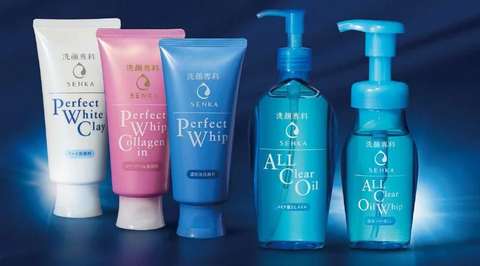
洗顔料とクレンジング剤の両方を使用したダブルクレンジングは、メイクをより効果的に落とすために強くお勧めします。
洗顔料は、余分な油分や不純物を除去するために、朝や運動後に一般的に使用され、クレンジング剤は、メイクや一日を通して蓄積された汚染物質を除去するために、夕方に使用されることがよくあります。
肌のタイプと悩みに応じて異なります。ニキビができやすい肌の場合は、洗顔料にサリチル酸や過酸化ベンゾイルなどの成分を探し、乾燥肌の場合は、クレンジング剤にヒアルロン酸やグリセリンなどの保湿成分を探してください。
はい、敏感肌タイプ向けに、穏やかな処方の洗顔料とクレンジング剤の両方が用意されています。「ジェントル」または「敏感肌向け」と表示された製品を探し、香料や硫酸塩などの刺激の強い成分は避けてください。
洗顔料は通常、より軽く、泡立ちやすいテクスチャーですが、クレンジング剤は、クリーミーからオイルベースの処方まで、さまざまな好みや肌のタイプに合わせて、さまざまなテクスチャーを提供できます。

洗顔料とクレンジング剤は、泡立ちタイプとクリーミータイプがあり、さまざまな肌のタイプや好みに合わせて、さまざまなテクスチャーを提供しています。
結論として、洗顔料とクレンザーの違いを理解することは、個々のニーズに合わせた効果的なスキンケアルーチンを作成するために不可欠です。どちらも肌を洗浄する目的を果たしますが、処方、目的、および使用法が異なります。
洗顔料は、脂性肌またはニキビができやすい肌のためのディープクレンジング剤であり、クレンジング剤は、より穏やかで、肌の水分バランスを維持し、すべての肌タイプで汚れやメイクを効果的に落とします。
洗顔料とクレンザーのどちらを選択するかを検討する際には、肌のタイプ、特定のスキンケアの悩み、個人的な好みを考慮してください。さまざまな製品を試して、肌がどのように反応するかを観察すると、健康的で輝きのある肌を実現するための最適なオプションを見つけることができます。
毎日の美容のインスピレーションと最新のトレンドについては、Japan With Loveの旅に今すぐ参加しましょう!
Share:
自宅でできるフケ治療の9つの治療法
国際女性デーを祝うトップ7のギフト